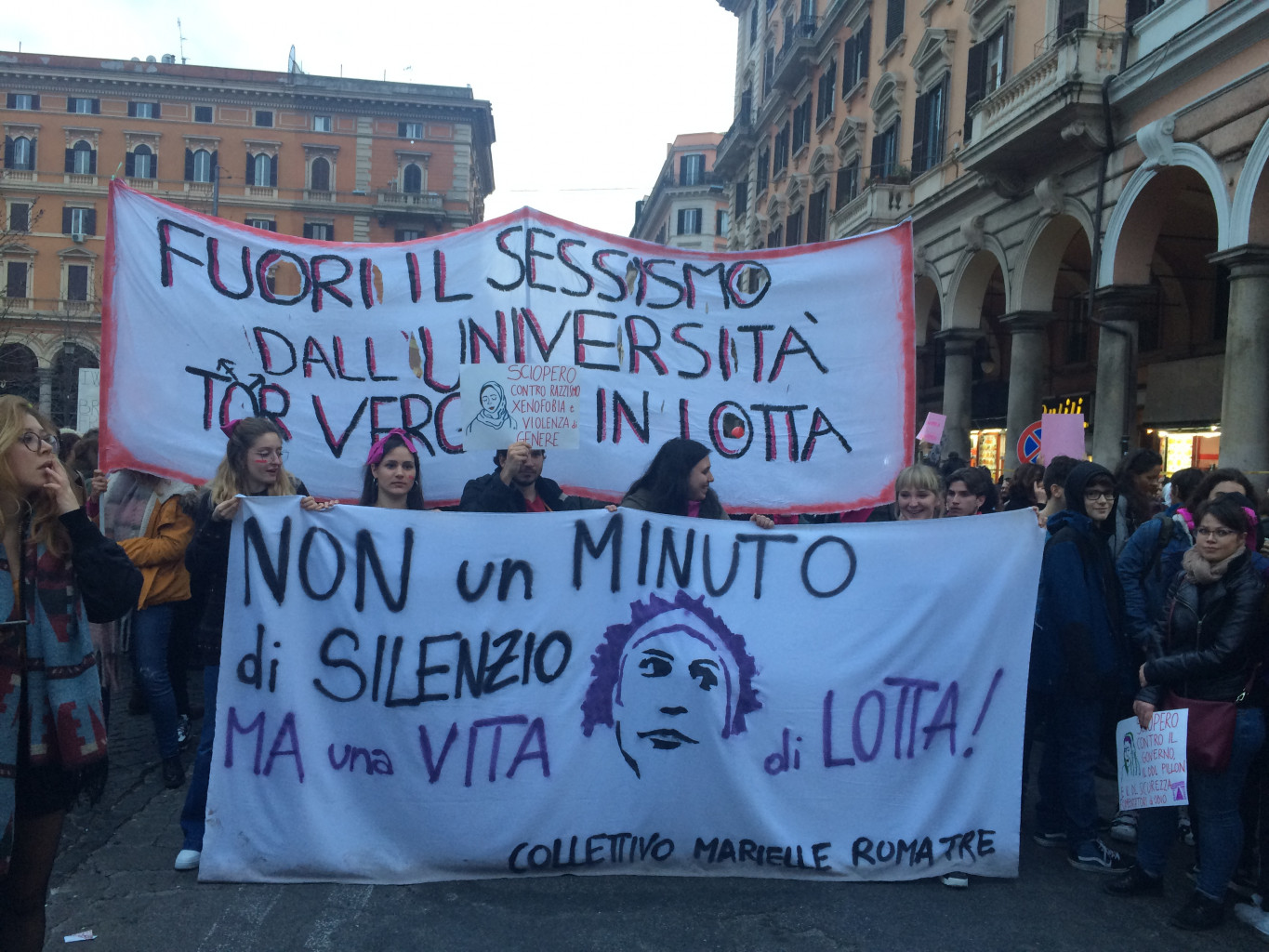This post is also available in: Français (French) العربية (Arabic)
Not a very long time ago, women in Italy were condemned for treason - female adultery was a crime until 1968 – but over the past few decades, legislations have changed the lives of Italian women, thanks to the relentless and rich debates within the feminist movement and the commitment of the women elected to Parliament. Below is a list of the ten most important legislations that have been passed since the post-war period until this day:
- Active and passive right to vote (1945/46)
- Access to public employment (1963)
- Right to divorce (1970)
- Reform of family laws (1975)
- Equal treatment for men and women in matters of work (1977)
- Interruption of pregnancy and measures to protect maternity (1978)
- Abolition of honor killing and shotgun marriage (1981)
- Ban on Female Genital Mutilation Practices (2006)
- Equality at work (2010)
- Pink shares in the boards of directors (2011)
- Law against stalking (2009)
- Law against sexual violence (2013)
Despite multiple proposals filed in Parliament, laws that grant Italians the right to assign the maternal surname -without resorting to the addition of that surname at a later time- have not yet been discussed in Italy. Currently, it is possible to attribute the maternal surname in addition to the paternal one if the couple is not married, or in the case of marriage, but after a formal request to the Municipality of birth.
The feminist movement in Italy
Three political and legislative areas constitute grounds for a heated discussion in Italy inside and outside the feminist movement: Prostitution, surrogacy (GPA/uterus for rent) and hatred against transgender and homosexual individuals.
With regards to prostitution, some political forces, including parts of the left-wing currents, attempted to have the Merlin law repealed in 2017 under pressure from lobbies that manage the thriving sex business from outside the country. The Italian Merlin law punishes the purchase of sexual services. Segments of the feminist movement, particularly the Non una di meno movement, is in favor of the legalization of what it calls 'sex work', distinguishing between coercion in trafficking and the 'free' choice to sell sexual services.
On the surrogacy/GPA matter, the women's movement in Italy was again divided between those who think that banning it is first and foremost an attack on homosexual couples and their wishes to parent a child, especially men, and those who argue that -apart from very rare cases where it is considered a service between loved ones- paves the way for a market that exploits the poorest of women, especially women from impoverished countries.
The debate on the current law against hatred of trans and homosexual individuals is one of the toughest debates in Italy and elsewhere, given the confusions between the terms sex, gender, gender identity and sexual orientation in the legislative draft that’s still in review process, and which to many feminists represents a setback for the centrality of women and their acquired rights.































